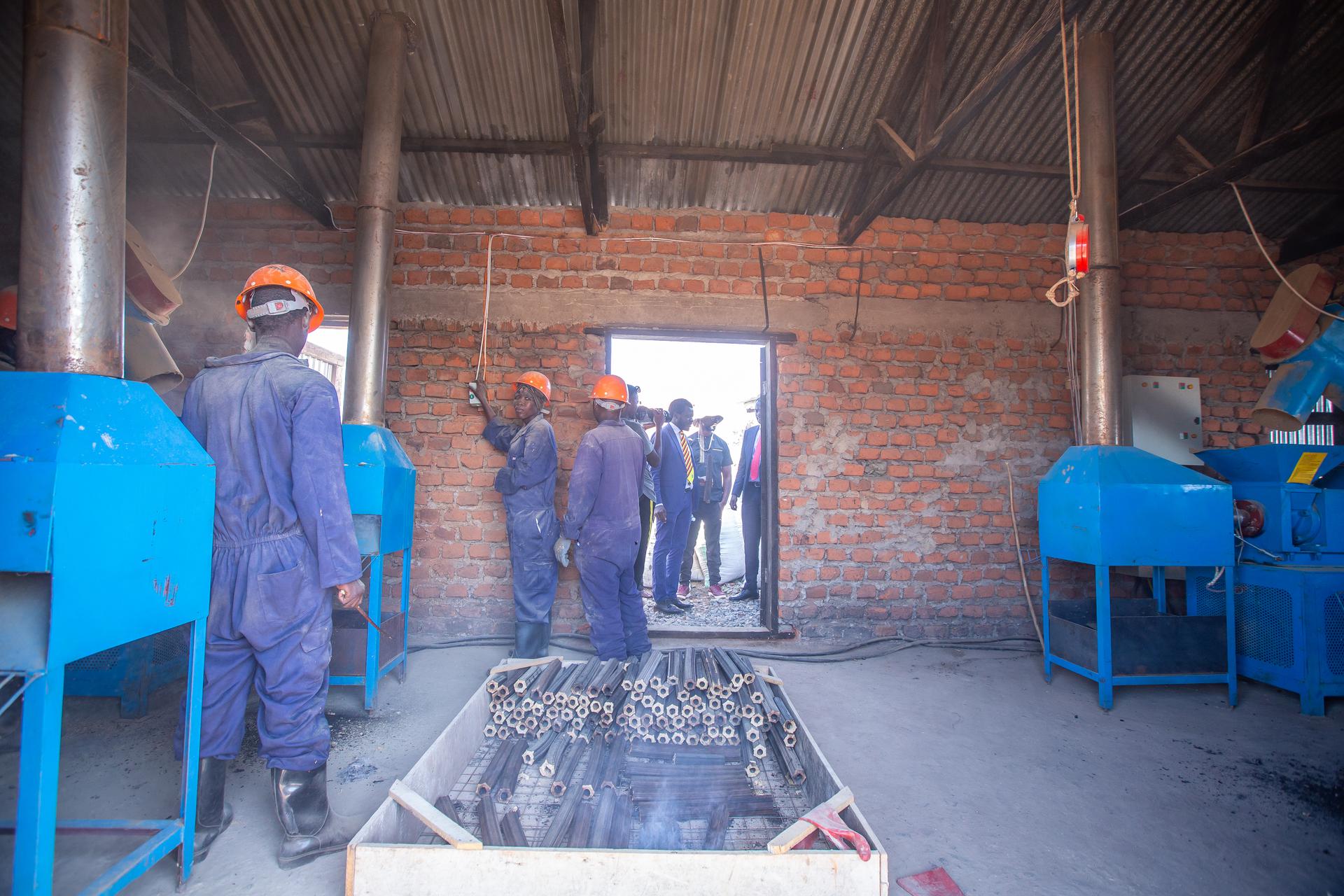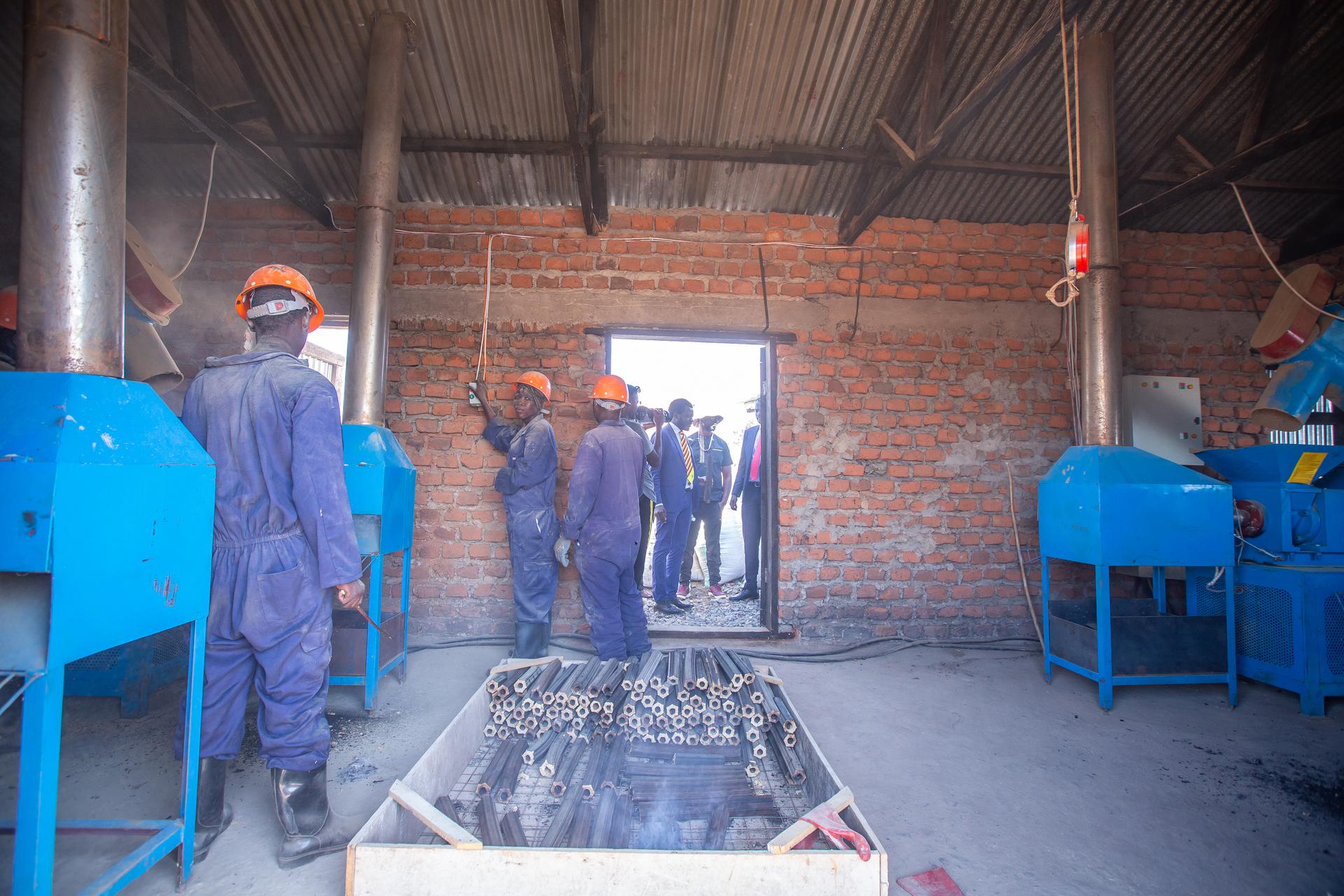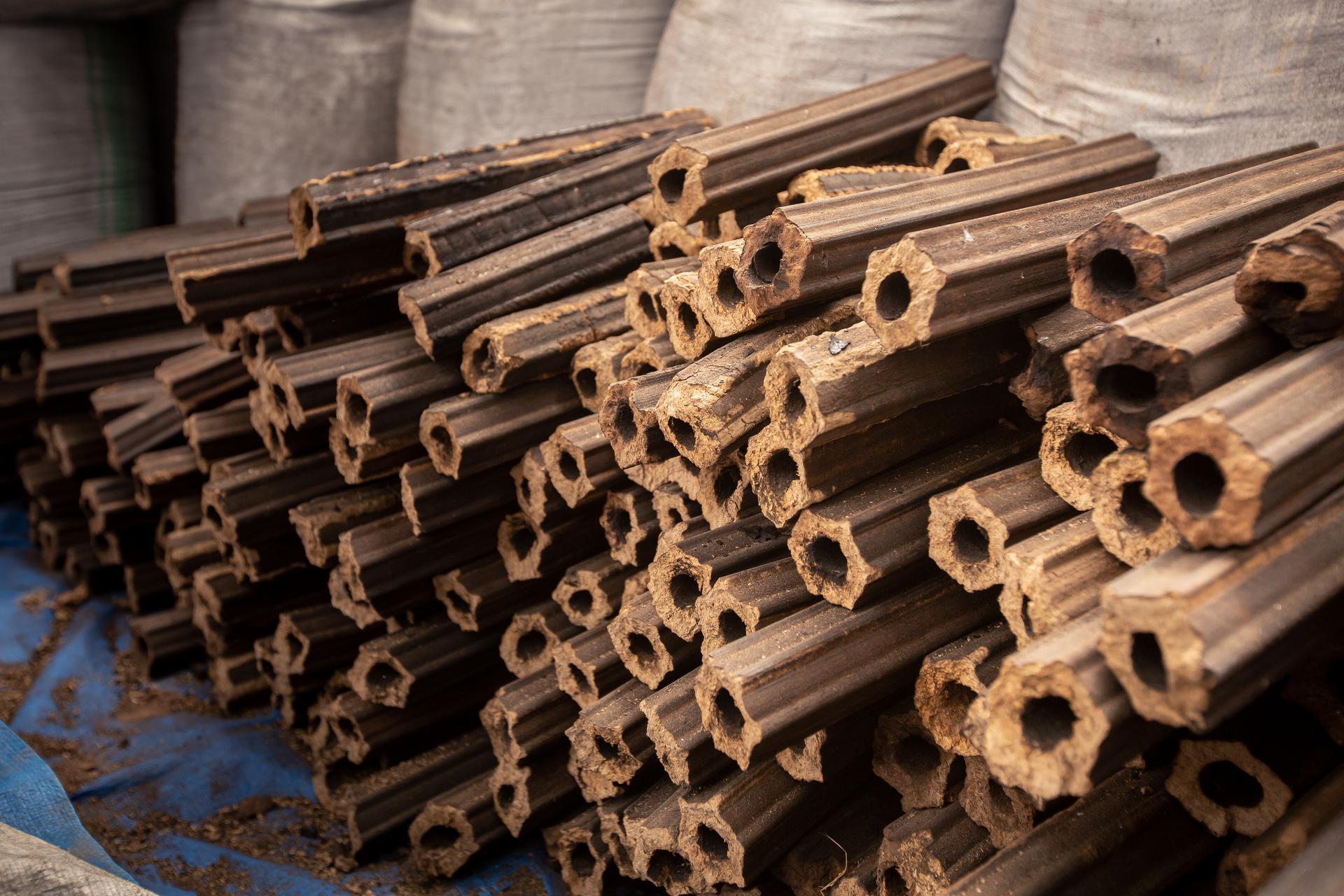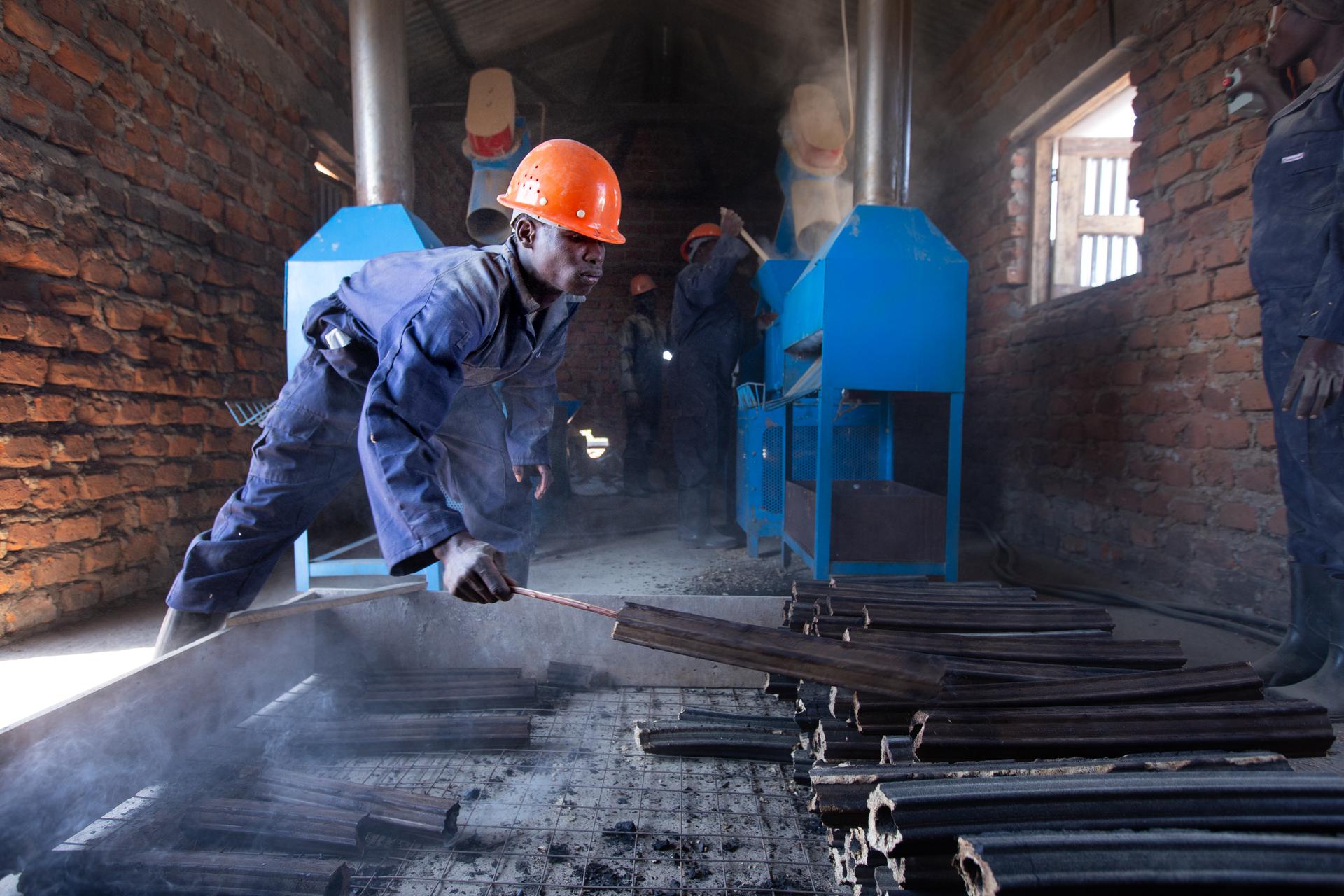Briquettes in production!
Since our last update, four briquette-making machines have begun operating in the new warehouse facility

Since our last update, four briquette-making machines have begun operating in the new warehouse facility. Here's a quote from the founder of the project, Peter Nyeko, on your impact:
"80,000 refugee families will be able to replace firewood & charcoal with a cleaner and more affordable alternative. Huge thanks to Wren for helping enable the installation, staffing, and training!"
But there's some trouble: since the briquette machines were stuck in storage for years, there's a bit of mechanical damage. The team is working on fixing it, but for now the machines are operating at 40% speed. That's still enough to generate 0.4 metric tons of briquettes in an hour, and prevents about 2 tons of CO2 from entering the atmosphere. Here's a picture of one of the briquettes, which are used as an efficient and green cooking fuel:

Next up, the team will be buying more machines to scale production to 2 tons of briquettes per hour. Since each new machine costs around $100,000, our partners are working to secure some government grants from the UK to quickly ramp up how much emissions we can prevent.
Last week, we received some great photos from the production facility. Take a look:




